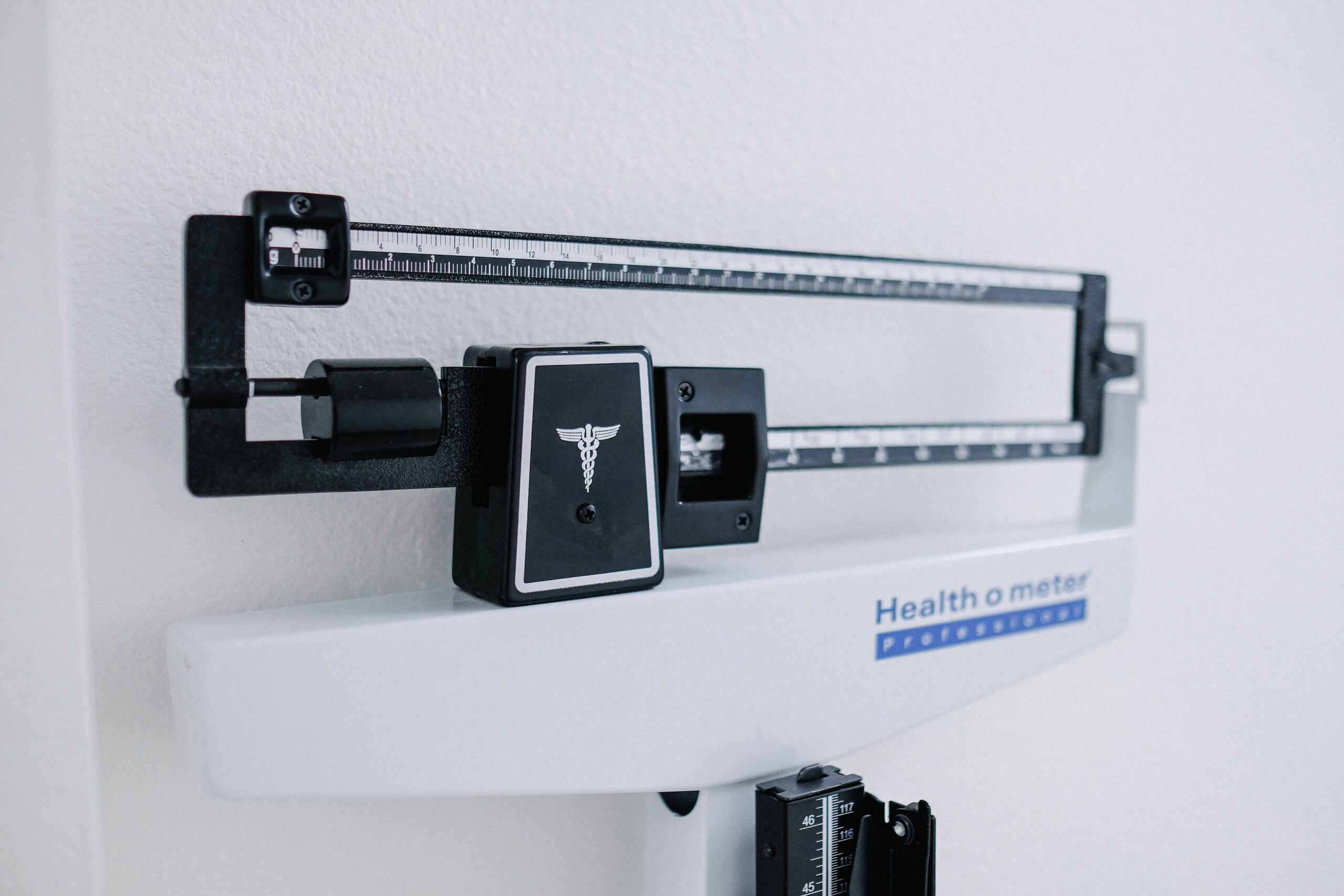
What Role Does Nutrition Play In Managing Lower Back Pain?
So you’ve been experiencing some discomfort in your lower back lately and you’re eager to find ways to manage the pain. Well, here’s a thought – have you ever considered the role of nutrition in alleviating lower back pain? It’s true, what you eat can actually have a significant impact on your back health. In this article, we’ll explore how certain nutrients can support the healing process, reduce inflammation, and promote overall spine health. So grab a cup of tea and let’s dive into the fascinating relationship between nutrition and managing lower back pain!

This image is property of images.unsplash.com.
Nutrition and Lower Back Pain
Lower back pain is a common complaint that can significantly impact your daily life. While there are various factors that contribute to this discomfort, including injury, poor posture, and muscle imbalances, nutrition also plays a crucial role in managing lower back pain. The food you consume can either promote or reduce inflammation, support bone health, and influence your overall well-being. By understanding the link between nutrition and lower back pain, you can make informed choices to alleviate your symptoms and improve your quality of life.
1. The Link Between Nutrition and Lower Back Pain
How Nutrition Can Contribute to Lower Back Pain
Your diet can directly contribute to lower back pain by affecting various aspects of your musculoskeletal system. Poor nutrition can lead to muscle imbalances and weaknesses, making your back more prone to injuries and strain. Additionally, inadequate nutrients can impact the health of your ligaments, leading to decreased flexibility and increased discomfort.
The Effect of Poor Nutrition on Muscles and Ligaments
When you fail to provide your body with proper nutrition, your muscles may not receive the necessary nutrients to function optimally. This can lead to muscle imbalances, where some muscles become weaker while others become overworked and tight. These imbalances can disrupt the alignment of your spine, causing lower back pain.
Furthermore, ligaments rely on essential nutrients to maintain their strength and elasticity. Inadequate nutrition can lead to decreased collagen production, making your ligaments more prone to injury and slower to heal. This can exacerbate lower back pain and prolong the recovery process.
2. The Impact of Diet on Inflammation
The Relationship Between Nutrition and Inflammation
Inflammation is a natural response of your immune system to protect your body from injury and infections. However, chronic inflammation can contribute to various health issues, including lower back pain. Your diet plays a significant role in either promoting or reducing inflammation throughout your body.
Foods That Promote Inflammation
Certain foods can trigger an inflammatory response in your body. These include processed foods high in trans fats, refined carbohydrates, and sugary beverages. These substances can increase the production of pro-inflammatory molecules, leading to heightened pain and discomfort in your lower back.
Foods That Reduce Inflammation
Conversely, a diet rich in anti-inflammatory foods can help alleviate lower back pain. Incorporating foods such as fatty fish (like salmon and mackerel), leafy green vegetables, berries, nuts, and seeds into your meals can provide your body with beneficial compounds that reduce inflammation. These foods are high in antioxidants, omega-3 fatty acids, and various vitamins and minerals that help combat inflammation and promote overall well-being.
3. The Role of Nutrients in Promoting Bone Health
The Importance of Calcium and Vitamin D for Bone Health
Your bones form the structural framework of your body, including your spine. Nutrients like calcium and vitamin D are essential for maintaining strong and healthy bones. Calcium provides the building blocks for bone formation, while vitamin D helps regulate calcium absorption in the body. Insufficient levels of these nutrients can weaken your bones, leading to conditions like osteoporosis and an increased risk of lower back pain.
Other Nutrients That Support Strong Bones
In addition to calcium and vitamin D, other nutrients play a role in promoting bone health and reducing the risk of lower back pain. These include magnesium, phosphorus, and vitamin K. Magnesium helps with calcium absorption and contributes to bone strength, while phosphorus is involved in bone mineralization. Vitamin K aids in the production of proteins that are essential for bone health. Including a variety of nutrient-rich foods in your diet, such as dairy products, leafy greens, nuts, and seeds, can help support strong bones and alleviate lower back pain.

This image is property of images.unsplash.com.
4. Foods That May Help Manage Lower Back Pain
Anti-Inflammatory Foods
Certain foods possess anti-inflammatory properties and can help manage lower back pain. Turmeric, for example, contains curcumin, a compound with potent anti-inflammatory effects. Including turmeric in your diet, either as a spice or in supplement form, may help reduce inflammation and alleviate discomfort in your lower back.
Foods Rich in Omega-3 Fatty Acids
Omega-3 fatty acids, found in abundance in fatty fish like salmon, can also contribute to pain relief. These fatty acids have anti-inflammatory properties and can help reduce inflammation in the body, including the lower back. Incorporating fatty fish into your meals at least twice a week can be beneficial for managing lower back pain.
Fruits and Vegetables for Pain Relief
Many fruits and vegetables contain phytonutrients and antioxidants that can help reduce inflammation and provide pain relief. Berries, cherries, and dark leafy greens are particularly rich in these beneficial compounds. Including a colorful variety of fruits and vegetables in your diet can provide your body with the necessary nutrients to manage lower back pain effectively.
5. Foods to Avoid for Lower Back Pain Management
The Negative Impact of Processed Foods and Sugars
Processed foods and foods high in added sugars can have detrimental effects on your overall health, including your lower back. These foods often lack essential nutrients while being high in unhealthy fats, sodium, and empty calories. They can contribute to inflammation, weight gain, and poor overall nutrition, all of which can exacerbate lower back pain.
High Sodium Foods that Increase Inflammation
Foods high in sodium can contribute to water retention and inflammation in your body. Excessive sodium intake can lead to increased blood pressure and fluid retention, potentially worsening lower back pain. Avoiding or limiting processed foods, canned soups, and fast food can help reduce sodium intake and minimize inflammation in your body.

This image is property of images.unsplash.com.
6. The Role of Hydration in Managing Lower Back Pain
The Importance of Proper Hydration
Proper hydration is essential for maintaining overall health and well-being, including managing lower back pain. Water is necessary for various bodily functions, including the lubrication and cushioning of joints and the transportation of nutrients to cells. Without adequate hydration, your body may experience increased stiffness and discomfort, including in the lower back.
How Dehydration Can Worsen Back Pain
Dehydration can lead to decreased fluid in the intervertebral discs, which are responsible for providing cushioning and shock absorption between your vertebrae. This can increase the risk of disc degeneration and heighten lower back pain. It is vital to drink an adequate amount of water throughout the day to support the health of your intervertebral discs and manage your lower back pain effectively.
7. The Role of Weight Management in Lower Back Pain
The Relationship Between Excess Weight and Back Pain
Carrying excess weight can put additional stress and strain on your back, leading to increased lower back pain. The excess weight can alter your posture, disrupt spinal alignment, and contribute to muscle imbalances. These factors can exacerbate lower back pain and make it challenging to find relief.
How Weight Loss Can Alleviate Lower Back Pain
Losing weight can significantly alleviate lower back pain by reducing the strain on your spine and supporting structures. It can improve your posture, restore proper spinal alignment, and alleviate muscle imbalances. Additionally, weight loss can decrease inflammation in your body, further reducing pain and discomfort. Incorporating a balanced and nutritious diet, along with regular exercise, can aid in weight loss and provide significant relief from lower back pain.

8. The Influence of Gut Health on Lower Back Pain
The Gut-Back Connection
Mounting evidence suggests that there is a connection between gut health and lower back pain. Dysbiosis, an imbalance of gut bacteria, can lead to chronic inflammation throughout the body, including the lower back. Poor gut health can also contribute to nutrient deficiencies and impaired absorption, potentially exacerbating lower back pain.
Probiotics and their Potential Benefits for Back Pain
Probiotics, beneficial bacteria that promote a healthy gut microbiome, may offer potential benefits for managing lower back pain. Probiotics can help restore balance in the gut, reduce inflammation, and improve nutrient absorption. Including probiotic-rich foods like yogurt, kefir, sauerkraut, and kimchi in your diet or considering probiotic supplements may positively influence your gut health and alleviate lower back pain.
10. Nutritional Supplements for Lower Back Pain Management
Supplements That may Support Overall Back Health
In addition to a balanced diet, certain nutritional supplements may support overall back health and alleviate lower back pain. These include:
- Omega-3 fatty acids: Fish oil supplements can provide a concentrated dose of omega-3 fatty acids, reducing inflammation and supporting joint health.
- Glucosamine and chondroitin: These supplements contain compounds found in cartilage and may help reduce pain and improve joint function.
- Vitamin D: If you have low levels of vitamin D, supplements can ensure you meet the recommended daily intake necessary for bone health.
- Magnesium: Magnesium supplementation may help relax muscles and alleviate muscle spasms, reducing lower back pain.
Cautionary Notes When Considering Supplements
While nutritional supplements can play a role in managing lower back pain, it’s crucial to consult with a healthcare professional before starting any new supplementation regimen. They can evaluate your specific needs, determine if supplements are necessary, and provide appropriate dosage recommendations. Additionally, supplements should never replace a balanced diet but rather complement it to ensure optimal nutrition for overall back health.
In conclusion, nutrition plays a significant role in managing lower back pain. By incorporating anti-inflammatory foods, supporting bone health, maintaining proper hydration, managing weight, and promoting a healthy gut, you can alleviate lower back pain and improve your overall well-being. Remember to consult with a healthcare professional for personalized advice and guidance on incorporating nutrition into your lower back pain management plan. With the right nutritional choices, you can take control of your lower back pain and enhance your quality of life.







